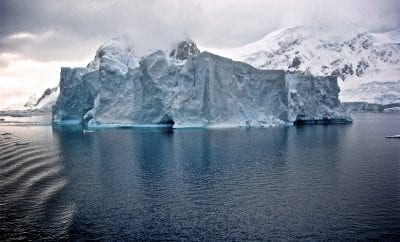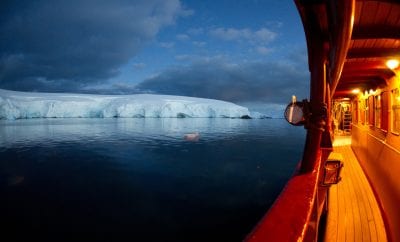
News
The Ocean is Changing Colors Due to Global Warming
Many dystopian novels and movies depict a world where humans have destroyed the environment, transforming our oceans into a soupy, toxic mess. While we’re not quite there yet, a new study says that, in the future, the ocean will no longer look the same.
A study published in the journal Nature Communications found that the color of the ocean will begin to change, thanks to climate change. The change won’t be anything radical, but it will result in the blues of the ocean becoming bluer, and the greens becoming greener. The ocean appears blue and green to us because of how light interacts with the water and the organisms floating around in it.
The molecules in water absorb all but the blue part of the sunlight, reflecting that blue color back to us, causing the ocean to appear blue. If the water is green, that means it has a denser population of organisms called phytoplankton. These organisms use sunlight and photosynthesis to create chlorophyll, their energy source for survival. When more phytoplankton is present, more chlorophyll is created, and the water appears green. In the absence of phytoplankton, the water will appear bluer.

A consequence of climate change is that it is altering the ocean’s current, warming some areas while reducing the amount of nutrients necessary to support these organisms in other areas. By looking at the changes in chlorophyll over time, researchers can already begin to see a change in color in areas affected by a reduction in phytoplankton populations.
Through a simulation, researchers were able to determine that the color of the ocean will have a much more intense shade of blue in subtropical regions, where phytoplankton is beginning to disappear. Other areas, where the water is richer in nutrients, will become much greener, thanks to rising temperatures caused by global warming.
This change in color is bad for a number of reasons, according to the study. The sharp reduction in phytoplankton populations will have a negative effect on climate change, as these organisms are responsible for removing a considerable amount of carbon dioxide from the air. They are also necessary for maintaining the health of other animals in the marine ecosystem. Without them, there could be catastrophic changes in both the food chain of the sea and the overall climate.





0 comments